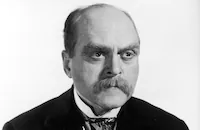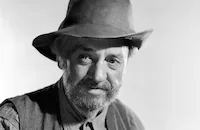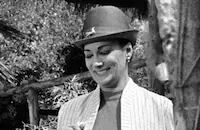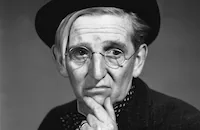Bring on the Girls
Cast & Crew
Sidney Lanfield
Veronica Lake
Sonny Tufts
Eddie Bracken
Marjorie Reynolds
Johnny Coy
Film Details
Technical Specs

Synopsis
The impressionable J. Newport Bates, America's wealthiest bachelor who is worth two hundred million dollars, breaks his twelfth engagement after discovering that his intended is just another gold digger. Tired of having an identity only through his money, Jay joins the Navy anonymously, but his aunt, uncle and lawyers insist that he be chaperoned by one of the lawyers' nephews, Phil North, who joins the Navy with him. While on liberty at the Coral Club in Miami, Jay meets cigarette girl Teddy Collins, who was once was engaged to Phil. When Teddy learns what Jay is worth, she flirts with him, and he becomes infatuated with her. Phil thinks Jay's new girl is Sue Thomas, a singer at the club, who is a "nice" girl and a banker's daughter. When Jay brings Teddy home to meet his aunt and uncle, Phil is appalled to learn that he is going to marry the gold-digging Teddy. Later Phil confronts Teddy, and she explains that Phil's old band leader, Ray Albany, introduced her to Phil's wife and child, and she was so overwhelmed with guilt that she gave them the $1,200 she has saved for a honeymoon. Phil insists that he has never been married and was framed by Ray into staying with the band rather than get married, but Teddy remains bitter. Phil tells Jay he cannot marry his girl, and to test Teddy's intentions, Jay pretends to be deaf and hears Teddy tell Phil that she is only after Jay's money. Teddy then realizes Jay is faking his deafness and slyly restores his faith in her. Phil leaves and gets drunk. The newspapers then report that Ray, who had been abroad entertaining the troops, has been taken by the Nazis. The report includes a picture of Ray's wife and child, whom Teddy recognizes as the ones to whom she gave Phil's money. Teddy tells Jay she is in love with Phil and goes to find him. A distraught Jay then visits Sue, who also has had to fend off a string of greedy suitors and welcomes Jay's sincerity. Believing Jay is deaf, Sue tells her maid that she likes him, and he suddenly reveals that he can hear perfectly well, then throws a party for her at the Coral Club. Although angry at Jay for tricking her into confessing her love, Sue comes to the party. Phil arrives and insists that he kiss the bride, still believing that Teddy is going to marry Jay, but she assures him it is Phil whom she loves. After Phil carries Teddy off, Jay tries to lift Sue but falls and they kiss.

Director
Sidney Lanfield
Cast

Veronica Lake

Sonny Tufts

Eddie Bracken

Marjorie Reynolds
Johnny Coy

Peter Whitney

Alan Mowbray

Grant Mitchell

Porter Hall

Thurston Hall
Lloyd Corrigan

Sig Arno

Joan Woodbury
Andrew Tombes
Frank Faylen

Huntz Hall
William Moss
Norma Varden

Spike Jones
Marietta Canty
Dorothea Kent
Stan Johnson
William Haade
Jimmie Dundee

Walter Baldwin
Patricia Cameron
Maxine Fife
Louise Laplanche
Lynda Grey
Terry Adams

Doris Dowling
Judith Gibson
Inna Gest

Veda Ann Borg

Douglas Walton

Grant Withers

Noel Neill

Jimmy Conlin
Ray Riggs
Eddie Hall
Dave Willock
Donald Kerr
William Hall
Jimmy Dodd
Stanley Mckay
Gary Bruce
Allen Pinson
Allen Fox
George Turner
Stephen Wayne

James Millican
Sammy Stein
Jack Chefe

Yvonne Decarlo
Carmelle Bergstrom
Harry Hayes Morgan
Frank Hagney
Alec Craig
Kay Linaker
Muriel Barr
Jerry Maren
Barry Watkins
Crew
Harold Adamson
Gloria Arden
Joe Arzonia
Raoul Pene Du Bois
John Cope
Danny Dare
Robert Emmett Dolan
Jan Domela
Hans Dreier
Farciot Edouart
Arthur Franklin
Edith Head
Gordon Jennings
Gordon Jennings
Gus Kahn
Natalie Kalmus
Wallace Kelley
Fred Kohlmar
Paul Lerpae
Joseph J. Lilley
Jimmy Mchugh
John Meehan
Neil Moret
Joel Moss
Ray Moyer
Wallace Nogle
Morgan Padelford
Irmin Roberts
William Shea
Karl Struss
Karl Tunberg
Darrell Ware
Wally Westmore
Philip Wisdom
Pierre Wolff
Lothrop Worth

Film Details
Technical Specs

Articles
Doris Dowling (1923-2004)
Doris Dowling was born on May 15, 1923 in Detroit, Michigan. She showed an interest in acting at a young age, and after a few years of stage work in the Midwest, she joined her older sister, the leading lady Constance Dowling, in Hollywood. Paramount soon took notice of the sultry brunette with the soulful expression and husky voice, and promptly signed her to a contract.
She made a stunning film debut as Gloria, the hooker who befriends Ray Milland at a bar, becoming his good-humored confidante in The Lost Weekend (1945); she followed that up in the overlooked, film noir gem, The Blue Dahlia (1946), playing Alan Ladd's shrewish wife before being killed by a mystery killer in the first reel. She made another noir thriller, the forgettable, The Crimson Key (1947), playing, once again, an unsympathetic part before heading off to Europe. Once there, Italian director Giuseppe de Santis used her effectively in Bitter Rice (1948), arguably her best performance as the jewelry thief hiding among women rice workers in Northern Italy; another notable role was as Bianca in Orson Welles' French production of Othello (1951).
She returned to Hollywood in the late '50s, and spent the next three decades doing television work: Bonanza, Perry Mason, Alfred Hitchcock Presents, Barnaby Jones, and The Streets of San Francisco, just to name a few. She retired quietly from acting by the early '80s. She was briefly married to bandleader Artie Shaw (1952-56), and is survived by her son through that marriage, Jonathan; and her husband of 44 years, Leonard Kaufman.
by Michael T. Toole

Doris Dowling (1923-2004)
Quotes
Trivia
All known copies in circulation are missing a 40-second segment from the Spike Jones production number, referring to "Eleanor" (Roosevelt). Please check your attic. After its theatrical run, the joke was soon outdated.
Notes
The film's working title was All Around the Town. Writer Pierre Wolff, whose onscreen credit reads "From a story by," wrote the screenplay for the French film L'homme qui cherche la verité, on which Bring on the Girls is based. In October 1941, the French film was released with English subtitles in the U.S. as The Man Who Seeks the Truth. Although the Golden Gate Quartet is listed in the CBCS, information in the MPAA/PCA File at the AMPAS Library reveals that their scene was edited out of the film, and their screen credit was therefore deleted. This was dancer Johnny Coy's first film. Several reviews praised his performance, including Hollywood Reporter, which stated: "One of the most conspicuous personal triumphs is scored by Johnny Coy, a young, loose-jointed tap dancer whose skill with his feet is astounding and stamps him as one of the best anywhere." According to Hollywood Citizen-News, Paramount paid $30,000 for the rights to the 1927 song "Chloe," which Spike Jones and his City Slickers burlesqued for the first time on film. The song is sung in the film by saxophone player Red Ingle. According to Paramount news, Jones and his orchestra previously had performed the piece over shortwave radio for U.S. fighting forces.

Miscellaneous Notes
Released in United States 1945
Released in United States 1945













